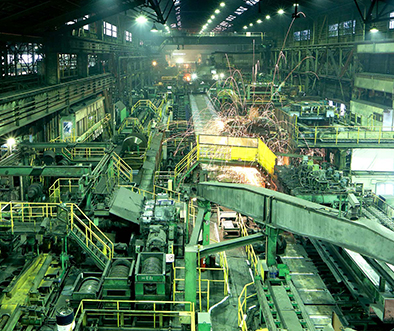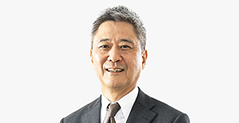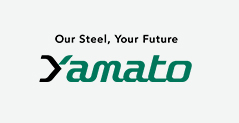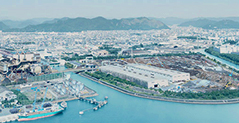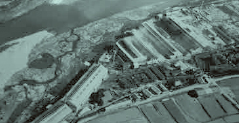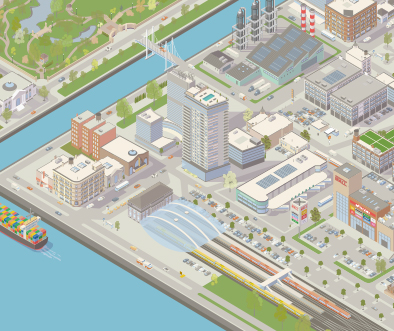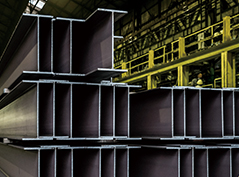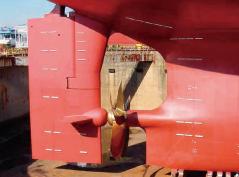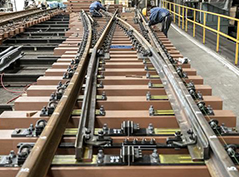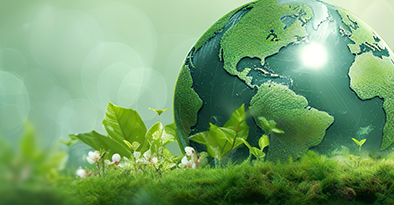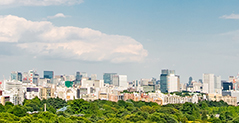Domestic 2030・2050 Environmental Vision / Medium-term Sustainability Plan
Domestic 2030・2050 Environmental Vision
We recognize that addressing climate change issues is one of the most important themes, and we have established an Environmental Vision that challenges us to become carbon neutral by 2050 and to reduce CO2 emissions by 38% in 2025 and 46% in 2030 compared to fiscal 2013 levels.
To achieve carbon neutrality, we will promote energy conservation and consider renewable energy, alternative materials (e.g., bio-coke), and CCUS (carbon capture, utilization and storage).
Domestic 2030・2050 Environmental Vision
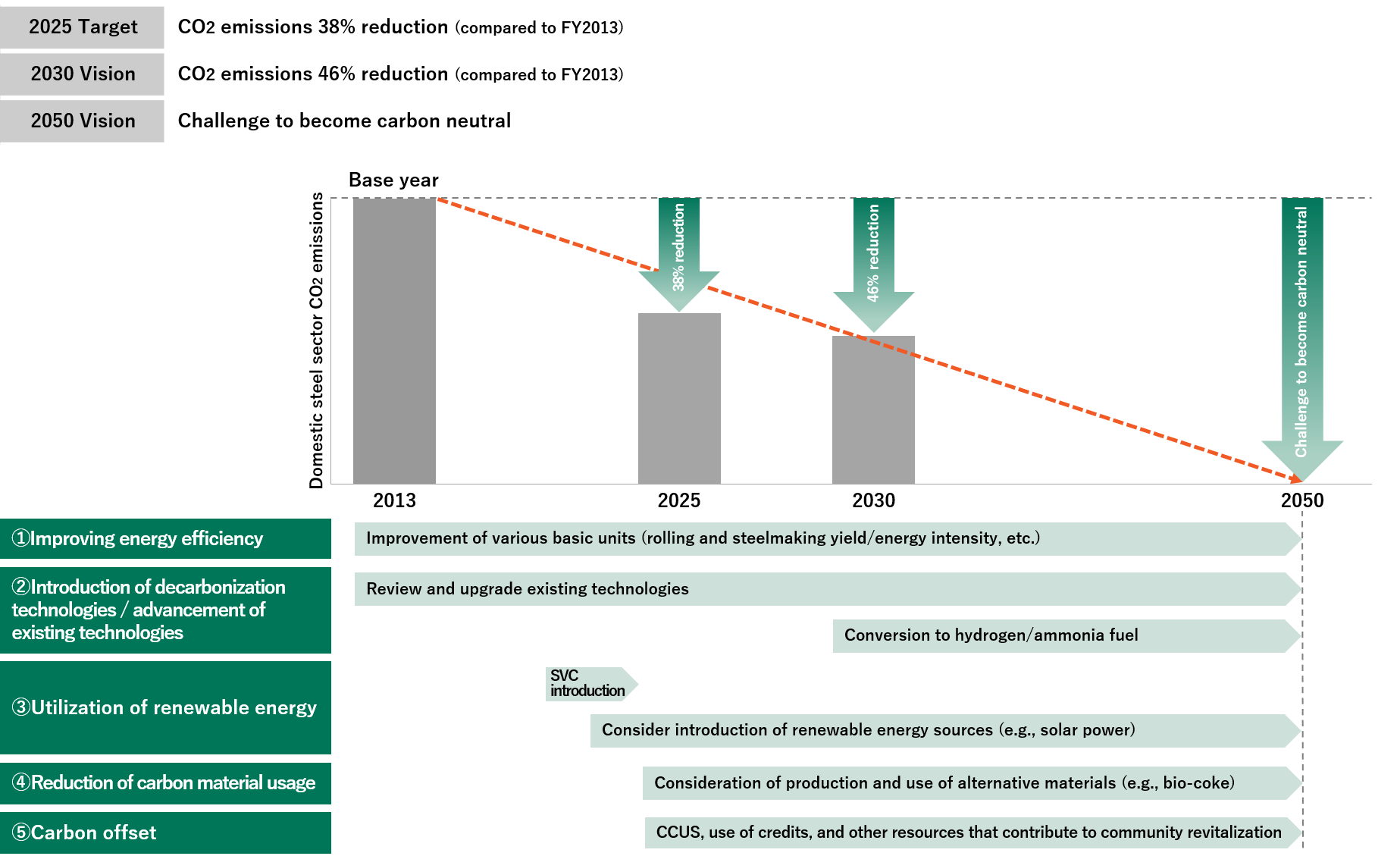
(Note 1) Scope 1: Considers planned implementation, including innovative technological development and infrastructure improvements that are compatible with our facilities.
(Note 2) Scope 2: Considering the effect of the improvement of power coefficients and the increase in the ratio of nuclear power, renewable energy, etc. by electric power companies.
(Note 3) Although limited to domestic steel operations, steel operations account for approximately 98.6% of energy consumption at domestic facilities.
Medium-term Sustainability Plan
About the identified materiality, we have set medium-term goals targeting FYE March 2026, as well as short-term annual targets to achieve these goals. Based on this plan, we will implement the PDCA cycle and promote the plan, as well as deepen the plan through deliberations by the Sustainability Committee.
| Classification | Materiality | Item | Corresponding SDGs | Risks/opportunities for our Group | Vision | FYE March 2026 | FYE March 2026 |
|---|---|---|---|---|---|---|---|
| Medium-term targets*1 | Annual targets*1 | ||||||
| E Environment |
Climate change | Response to climate change risks |



|
<Opportunities>
|
We will take measures towards a carbon-neutral society in 2050 by introducing innovative decarbonization technologies, promoting energy conservation and using renewable energy in sectors where this is feasible. |
|
|
| Reduction of greenhouse gas ("GHG") emissions |
|
|
|||||
| Efficient energy use |
|
|
|||||
| Use of renewable energy |
|
|
|||||
| Resource recycling | Cyclic use of resources |


|
<Opportunities>
|
By enhancing and expanding systems that facilitate efficient recycling of scrap iron, we will contribute to the creation of a circular economy and realization of a sustainable society. |
|
|
|
| Eco-friendly products | Development of eco-friendly products and services |



|
<Opportunities>
|
We will develop products and technologies that help to reduce CO2 emissions and the environmental burden facing society as a whole. |
|
|
|
| S Social |
Product liabilities | Ensuring product quality |



|
<Risks>
|
We will remain aware of our responsibility to support social infrastructure through our iron and steel products, heavy engineering, and rail products' business. We will prioritize the provision of safe, dependable, high-quality, high-added-value products and services. |
|
|
| Strengthening of disclosure to and communication with customers |
<Opportunities>
|
We will heed the voices of our customers and the public, offer added value, and work toward continual improvement. |
|
|
|||
| Human resource development | Human resource development |


|
<Opportunities>
|
We will enhance the loyalty of our employees by focusing on sustainability. We will evolve as a company capable of success in a global arena by rotating our workforce to achieve diverse skills and advanced technological skills and flexible planning capabilities needed to realize our corporate philosophy (MISSION, VISION, Yamato Spirit) throughout our entire group. |
|
|
|
| G Governance |
Corporate management base | Governance |

|
<Opportunities>
|
We aim to maintain our position as a company trusted by the general public, strengthen our corporate governance, and become a sustainable company capable of responding with resilience to climate change and other major environmental threats. |
|
|
| Compliance |
<Risks>
|
|
- Human rights initiatives (formulation and announcement of Human Rights Policy, employee awareness and education, and the establishment of a PDCA cycle including human rights due diligence). - Anti-bribery and anti-corruption (formulation of guidelines and employee awareness and education). - Strategic use of intellectual property. |
- *1 Unless otherwise stated, descriptions under these items target iron and steel products business that would have the greatest impact on Yamato Kogyo Group.
- *2 To conform with the Japanese government’s reduction targets, we use FYE March 2014 as the base year.
- *3 Scope 1 and 2 total. Because the electric furnace business is characterized by heavy use of electric power, it would be significantly impacted by any change in the generation mix of electric power companies.
- *4 SuMPO EPD and Climate Declaration
Yamato Kogyo Group Medium-term Sustainability Plan(PDF:265KB)
Medium-term Sustainability Plan Initiatives and Achievements in FYE March 2025(PDF:243KB)

